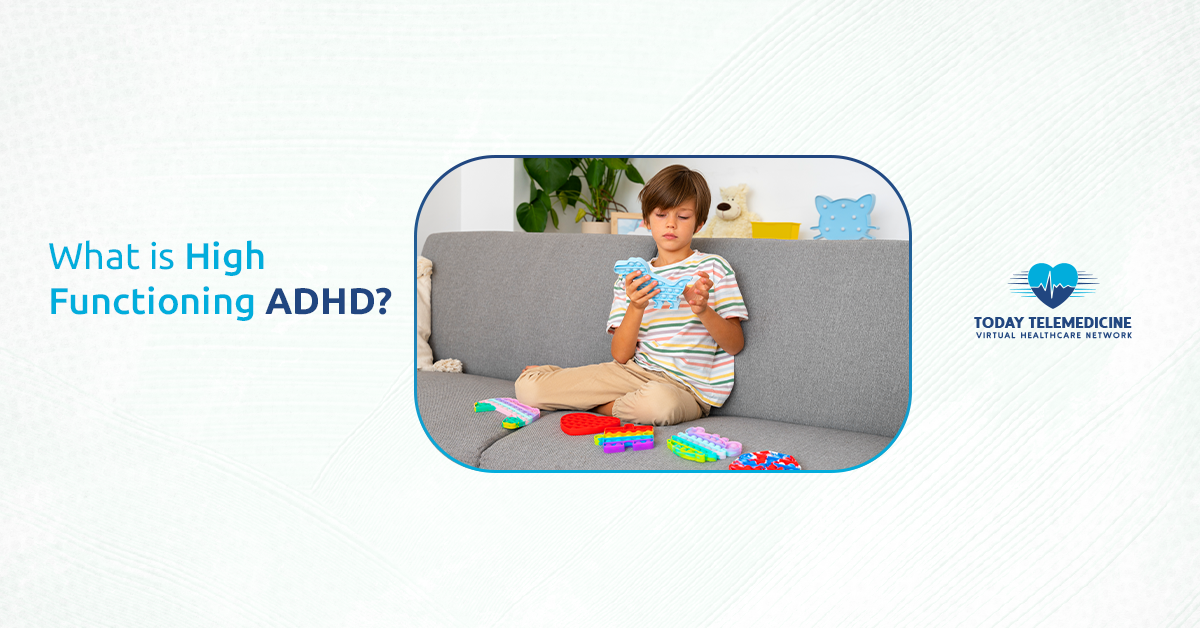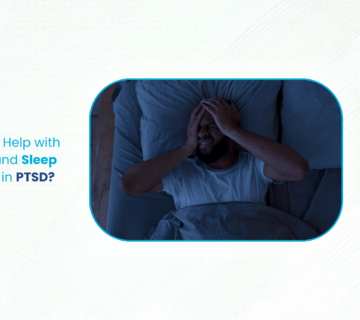Has it ever felt as if there is too much to do and it’s never actually done?
Managing things well is possible for you, although it feels like you’re barely holding the pieces together.
Many might feel emotionally exhausted while holding it all together on the outside, which may mean they’re experiencing high-functioning ADHD.
Below, we will look into high-functioning ADHD, why it is commonly overlooked, and explore how understanding it can help people get their lives in order.
What is High Functioning ADHD?
Although high functioning ADHD isn’t a formal diagnosis found in the DSM-5, it is a phrase people use to explain those with ADHD who are successful in some aspects but have internal challenges, too.
This type of ADHD makes someone appear calm and focused outside, but they actually have trouble with inattention, hyperactivity, and impulsivity. Sound familiar?
Certainly, people with high-functioning ADHD can keep jobs, attend school, or manage relationships, yet this often means working very hard to cope, experiencing stress, and often rushing to get things done right before deadlines.
They may always feel excessively pressured or as though they are balancing on a thin rope.
After all, you may wonder, “How does someone know they have ADHD if they are already doing fine?”
So, having the right diagnosis and proper management becomes very important.
Symptoms of High-Functioning ADHD
Because ADHD is a spectrum, problems can be mild or as serious as they are disruptive.
Each person’s ADHD may look somewhat different, but these traits are common among high-functioning individuals:
- It is hard to pay attention and focus on topics, getting work done, or details, even though you wish to.
- Overachieving tendencies or perfectionism to counterbalance feelings of being scatterbrained or forgetful.
- Procrastination is followed by periods of intense productivity, often fueled by anxiety.
- Time blindness is when you somehow misjudge how much time has passed or how long things will take.
- Struggles with organization—even having a creative planner, doesn’t keep you organized.
It is considered high functioning because a person with these symptoms might meet the social expectations for “success.”
It is usually the inner anguish they go through.
How Is High Functioning ADHD Diagnosed?
If parts of this information seem familiar, it is very important to get an official diagnosis from a specialist. Usually, this approach involves:
- An initial consultation with a specialist, like a psychiatrist, psychologist, or neurologist.
- An examination of medical history, current life struggles, and how they change over time.
- Working together with people who recognize your strengths and weaknesses (e.g., partners, friends, or family).
With virtual care options like telemedicine, finding “ADHD testing near me” has never been easier.
The Challenges Behind High Functioning ADHD
It feels as though managing high-functioning ADHD is much like trying to build a sandcastle as the tide rises.
On the outside, you’re handling your daily workload and deadlines without much difficulty. However, the amount of mental work it takes? Exhausting.
Here’s why many people with high-functioning ADHD might fly under the radar:
- They’ve mastered coping mechanisms. They are able to use skills and methods to cope with anxiety. Planning too much, fantasizing about work late into the night, or coming up with hacks around the problems might help for a while.
- Imposter syndrome hits hard. When no one can see their struggles, they may end up thinking that others are handling life more smoothly than they are.
- Invisible struggles are harder to validate. Since ADHD symptoms aren’t always easy to notice, people may miss the signs and call it laziness instead.
The result? When ADHD goes untreated, it may result in people feeling endless fatigue, stress, and sadness.
Related: How to Get Out of ADHD Paralysis?
Managing and Living Well with High-Functioning ADHD
ADHD works on overdrive, but by employing helpful strategies and having support, you can do very well with it. These methods will make things easier:
- Rethink productivity. When you work on improving your skills, think of sprints that allow you to work efficiently and adopt helpful timers like the Pomodoro method.
- Get help from a doctor if you feel it is necessary. In many cases, working with a knowledgeable ADHD therapist or psychiatrist (online or in person) can result in support with strategies for coping and helpful medications, if necessary.
- Externalize your brain. Whether you choose an app, a calendar, or a sticky note, use something to help you stay on top of your job.
- Build a support system. Talking about your experiences with someone who understands can help you feel much better.
- Celebrate the wins. Did you find an hour to be productive? You’ve accomplished a hard project? Celebrate your effort for every step you take, big or small.
Today Telemedicine’s ADHD Program
If you require professional ADHD care that is simple and easy to access, Today Telemedicine provides an ADHD program. The following tools are part of the program:
- State-of-the-art testing: Testing with QbTest and QbCheck offers detailed information on ADHD symptoms, making the steps for diagnosis much easier.
- Three-step care model: This program makes things simple, starting with a quick assessment, then booking your appointment, and getting ongoing help.
- Medication management: Stimulants like Adderall and Vyvanse are prescribed, along with non-stimulants, to residents in the state of Florida.
- Affordable care: The program lets you choose between paying directly and using your insurance, making care easy and comforting.
The Today Telemedicine ADHD program was created to provide helpful, personalized care that allows individuals to control their ADHD without difficulties.
When to Reach Out for Help
No one should constantly feel like they’re barely hanging on. When you’ve looked up “ADHD doctors near me” to find a new specialist, you might be ready to make that next move.
The appropriate support from experts allows you to move from surviving to thriving.
Through Today Telemedicine, you can talk to an ADHD specialist from home without the need to travel.
If you require ADHD testing, therapy, or continuous support, help is only a click away.
FAQs
Is it possible to overcome high functioning ADHD as you age?
With proper care and strategies in hand, what ADHD may cause can become less serious as the years go on.
Is it possible for high functioning ADHD to go unnoticed?
Absolutely. It is common for people to learn about their ADHD later in life, mostly because they’ve learned ways to cope with it.
Do I first see an ADHD therapist or a doctor?
Either works! A therapist works on communication, but when medication is helpful, a psychiatrist can prescribe it. Starting with either method works well at the beginning.
Is remote healthcare treatment for ADHD reliable?
Absolutely. Using virtual platforms lets you see ADHD care experts who have the right credentials.





